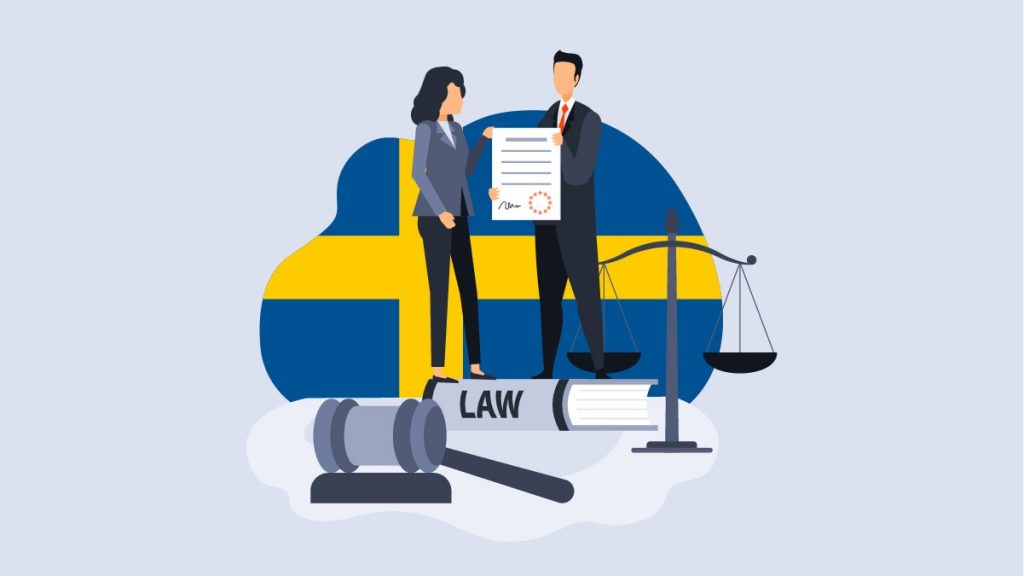What is the EU Whistleblowing Directive and when did Sweden embrace it?
The EU Whistleblowing Directive required private and public sector employers with 250 employees or more to implement a whistleblowing system by 17 December 2021 while smaller organisations with between 50 and 249 employees were given an extra year to implement the necessary measures. The vast majority of EU member missed the initial deadline.
Sweden was notable among European countries in kicking off its transposition process extremely early, even before the EU adopted the directive. In May 2019, the Swedish government launched an inquiry commission to gauge how the EU Whistleblowing Directive should be transposed into national law.
The situation in Sweden before the Directive
Sweden had dedicated whistleblower protection legislation in place since 2016 and it came into force at the beginning of 2017. The Whistleblower Act (SFS 2016:749) enabled Swedish employees to report suspected wrongdoing such as corruption, misuse of public funds and violations of rights while remaining protected from retaliation. The legislation was criticised, however, as whistleblowers could become exposed through a system of internal reporting and subsequent reporting to regulators. The fact that the law did not guarantee anonymity and confidentiality had been identified as a major flaw that led to the early interest in the EU Whistleblowing Directive.
Sweden and the EU Whistleblowing Directive – the road to implementation
- June 2016: Sweden implements the Whistleblower Act
- January 2017: The Whistleblower Act comes into force
- May 2019: Government announces investigation into transposition of EU Whistleblowing Directive
- June 2020: Committee delivers 802 page-long report containing proposals for implementation of the Directive and replacement of the Whistleblower Act
- November 2020: Public consultation on Sweden’s draft law to implement the EU Directive ends
- May 2021: Bill on implementation of the Whistleblowing Directive enters Swedish parliament
- September 2021: Whistleblowing bill is approved
- December 2021: Whistleblowing bill comes into force
- July 2022: Internal reporting channels have to be in place
New and old legislation – the key differences
While the new bill transposes the EU Whistleblowing Directive into Swedish national law, it goes beyond the minimum standards required. As well as containing provisions on protecting persons reporting information about misconduct in a work-related context, the new whistleblowing law in Sweden also extends that protection to further individuals. For example, this can include people who provide assistance to a whistleblower or legal entities the whistleblower owns, works for or is otherwise connected to.
The law also obliges organisations to establish whistleblowing channels and sets new standards for processing personal data and dealing with professional confidentiality. Swedish companies with over 250 employees had to establish internal whistleblowing channels by July 17, 2022 while the deadline for organisations with between 50 and 250 employees is December 17, 2023.
The most important aspects of the new law
- A company must take steps to inform staff about its whistleblowing channel(s)
- Internal reporting channels must be provided for employees, voluntary workers, interns, subcontractors, entrepreneurs, members of the board and shareholders
- Employees must have the possibility to report wrongdoing in written and oral form
- Confirmation of a report must be provided within 7 days while feedback has to be given within 3 months
- Personal information can be collected when necessary but this is only available to case handlers
- Personal information can be stored for a maximum of two years while personal information irrelevant to the case needs to be removed
- Protection covers all complaints regardless of the type of wrongdoing
- Damages and compensation can be provided to affected persons
- All municipalities fall under the scope of the bill, even they have a population of less than 10,000
Where Sweden goes beyond the EU Directive
The last point outlined above is noteworthy in that it goes beyond what is outlined in the EU Whistleblowing Directive. Sweden’s law stipulates that municipalities with less than 10,000 inhabitants have to implement internal reporting channels while the EU Directive has a requirement above a population of 10,000. Another area where Sweden takes things a step further is when it comes to the protection of whistleblowers where information being disclosed contains a “general interest”. By comparison, the EU Directive is aimed at breaches of Union law.
Summing up Sweden’s strides
Whistleblowing has become an increasingly important part of employment law, particularly within the financial services sector, and both Sweden and Denmark are examples of countries that moved early to strengthen protection for individuals reporting wrongdoing in the workplace. Swedish Employment Minister Eva Nordmark previously commented on the government’s commitment to improving the protection of whistleblowers in the country. “People should not have to fear dismissal or being locked in a freezer for reporting wrongdoing in their workplace”, Nordmark said. She added that “we should not have silent workplaces where problems are swept under the carpet”.
A recent report from Transparency International and the Whistleblowing Network International looked at progress of the transposition of the EU Directive. It praised Sweden for its transparent and inclusive transposition progress, particularly its move to get the implementation of the Directive started as early as possible.
Whistleblowing Laws in the European Union
A glance at the implementation of the EU Whistleblowing Directive in EU Member States









